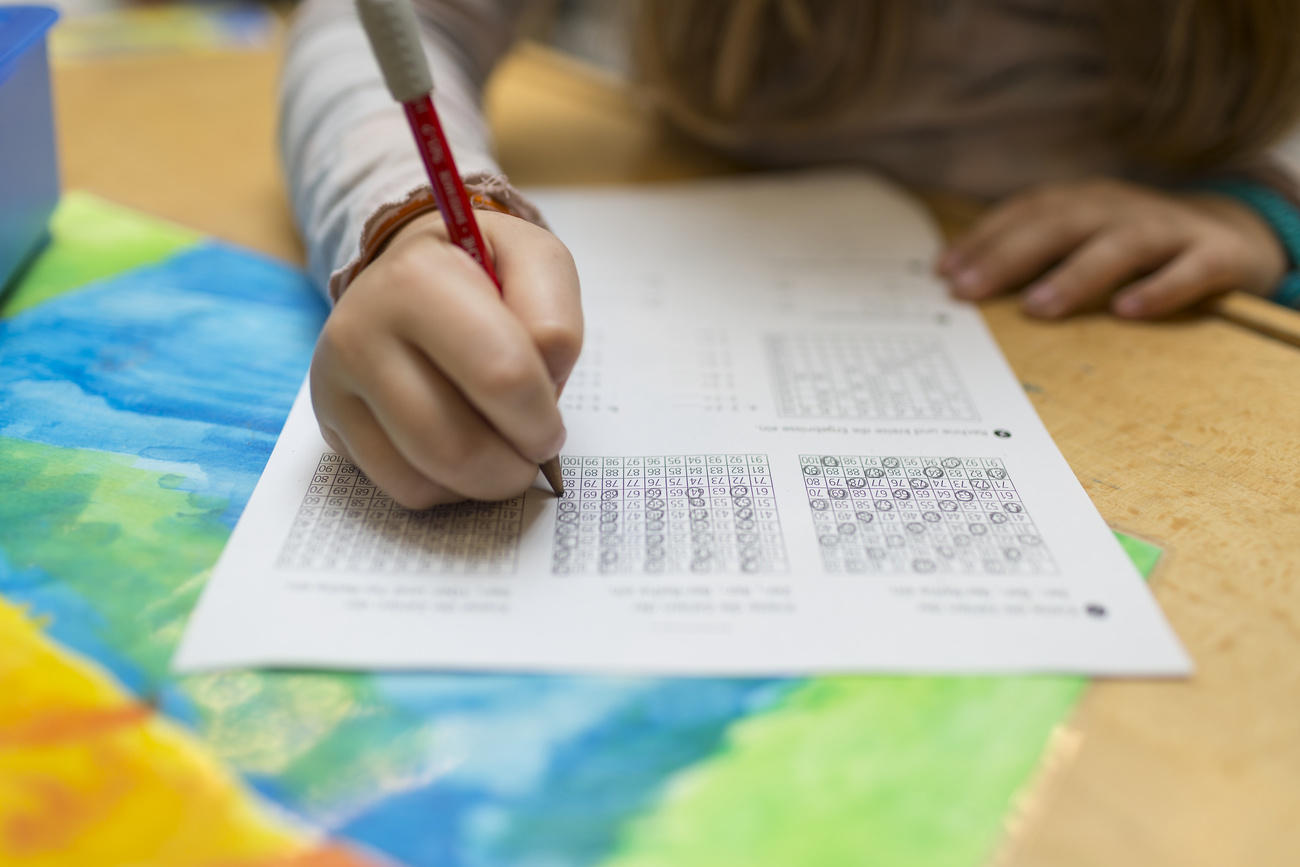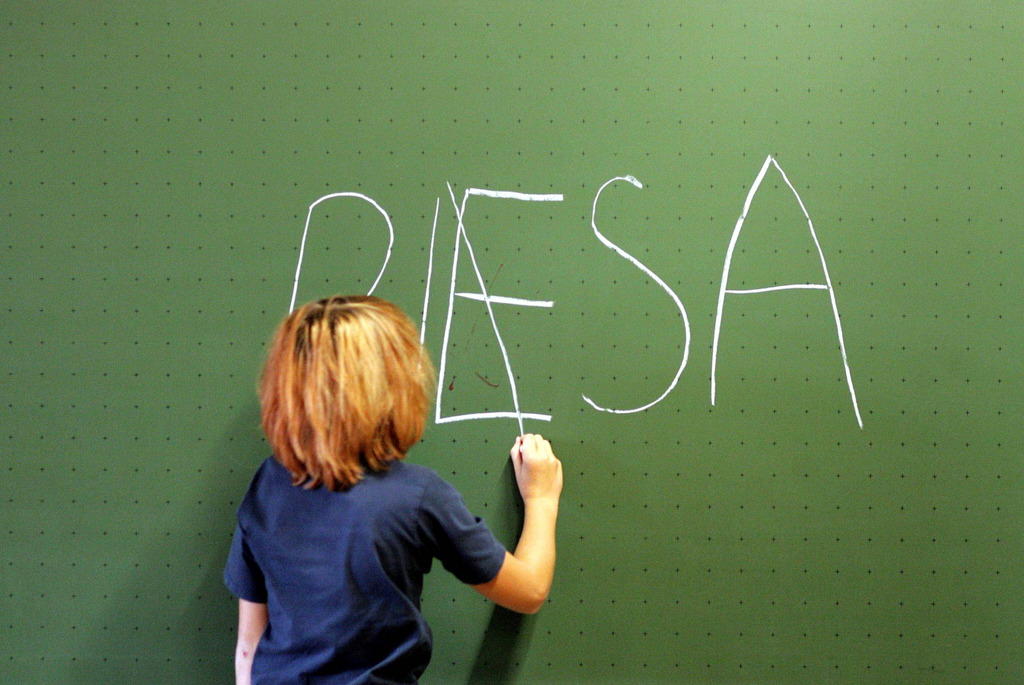
Over a third of Swiss pupils behind on maths

More than one in three schoolchildren in Switzerland have not reached the required maths standards, according to a study published on Friday.
The results are all the more surprising because the last worldwide Organisation for Economic Co-operation and Development (OECD) PISA test External linkof 15-year-olds around the world placed Switzerland top for maths in Europe.

More
PISA survey: young Swiss are the best at maths in Europe
The Swiss report, by the Swiss Conference of Cantonal Education Directors (EDK),External link examined more than 20,000 pupils on basic language and maths skills, as set down in national educational goalsExternal link drawn up by the EDK in 2011. It was the first test of its kind.
Cantons are in charge of educational matters in Switzerland, leading to some regional differences. There have been moves to harmonise the systemsExternal link, on the basis of an education article in the Swiss constitution, which was accepted by 80% of voters in 2006.
+ Read more about the Swiss education system here
+ For more stories on schools, click here
What was tested
The tests looked at knowledge of the language of instruction – German, French and Italian – as well as the first foreign language (German, French or English) at the end of primary school, at approximately age 12 (stats from 2017). For maths, pupils were tested at the end of compulsory school, at age 15-16 (2016).
The report found that 62% of pupils reached the required standard for maths, with large regional differences: it was 43% in canton Basel City, the lowest rate, but 83% for pupils in the French-speaking part of canton Fribourg.
It was a difference picture for the language of instruction. Here, almost nine out of ten schoolchildren reached reading goals, with the French-speaking part of canton Fribourg again leading the way. Glarus and canton Basel City were the poorest readers. Approximately 80-89%, depending on the canton, had mastered writing.
There were also good results for foreign languages with, for example, almost 90% of pupils reaching the goals for speaking.
Reasons, reactions
The EDK said that the harmonising measures appeared to be more advanced for languages, and less so for maths, as could be seen in the differences in the results.
The study cited the possibility that the maths demands placed on students may be too high.
“Experts think that some of the maths competency skills and the associated exercises seem to be very demanding,” an EDK statement saidExternal link.
This could explain why Swiss pupils do very well in European comparisons for maths, but less so in the Swiss test. An EDK committee will investigate the issue further, the body added.
Conradin CramerExternal link, in charge of education at canton Basel City, told the Swiss news agency Keystone-SDA that he was aware of the canton’s poor showing in the tests.
“It’s always difficult for an urban canton to shine in these kinds of statistics,” he said. He also pointed to the fact that the study had taken statistics from before harmonisation measures in the canton. Basel City was not intending to take any immediate measures in reaction to the results, he said.

In compliance with the JTI standards
More: SWI swissinfo.ch certified by the Journalism Trust Initiative






























You can find an overview of ongoing debates with our journalists here . Please join us!
If you want to start a conversation about a topic raised in this article or want to report factual errors, email us at english@swissinfo.ch.